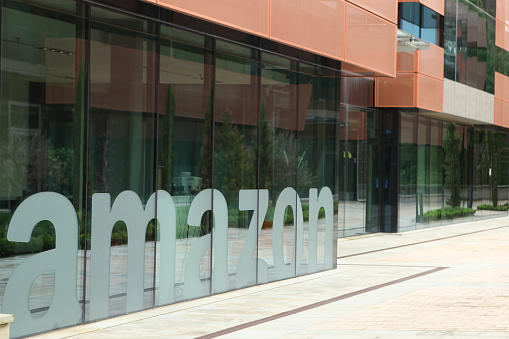There have been some big moves made lately in the fight against facial recognition technology. Last week, San Francisco banned local government use of the technology completely. Now, the focus has turned to Amazon’s infamous Rekognition program.
At the company’s annual meeting on Wednesday, Amazon’s own shareholders will vote on two proposals. One, to stop the sale of Rekognition to the government, and the other to require an independent review of its civil and human rights impacts.
In preparation of the vote, a coalition of privacy and civil rights advocates have written an open letter to Amazon’s shareholders. On May 22, the American Civil Liberties Union (ACLU) will present the open letter at Amazon’s meeting by invitation of shareholders.
The presentation will mark one year since the ACLU first revealed how far Amazon’s Rekognition program had gone. Now, the letter is open for other groups and individual consumers to sign on.
Within it, the groups focused on addressing Amazon’s long history of ignoring public concern:
“Your vote on these proposals will help chart the course for the kind of society we’ll have to live in, and whether that society will be forced to suffer under continuous, inescapable, and dangerous government surveillance…Amazon has shown it will not voluntarily act to prevent the deployment of this dangerous technology, posing a material risk to the company’s business reputation and the public’s trust. This product threatens the safety and civil rights of people everywhere.”
Amazon has faced pressure to stop selling Rekognition long before its shareholders were brought into the conversation. According to the letter, a coalition of community leaders even met with Amazon leadership in December 2018. Their goal was to highlight concerns around Rekognition and its potential for contributing to mass surveillance, but, “Amazon didn’t listen.”
Last month, AI researchers from big tech companies and top universities — including Turing Award winner, Yoshua Benigo — published an open letter calling on Amazon to stop selling Rekognition to police.
Documents obtained by the ACLU of Northern California in May 2018 originally revealed that Amazon sold Rekognition to police. Amazon listed the city of Orlando, Florida, and the Washington County Sheriff’s Office among its customers.
Prompted by that revelation, the ACLU conducted a test of Amazon’s program in July 2018. It falsely matched 28 members of Congress to mugshots — six were members of the Congressional Black Caucus. Then, another study found Rekognition couldn’t recognize darker-skinned women.
Errors with Amazon’s Rekognition program aren’t advocates only concern. The letter notes that regardless of its accuracy, “putting this technology in government hands creates an unacceptable risk of exacerbating racial disparities in arrests, imprisonment, and even police use of force.”
As a result, facial recognition is particularly dangerous for communities who are already under surveillance. The letter states:
“As shown by a long history of other surveillance technologies, face surveillance is certain to be disproportionately aimed at immigrants, religious minorities, people of color, activists, and other vulnerable communities. The dangers of government face surveillance can only be addressed by stopping its use.”
Amazon has focused on deploying Rekognition without taking any responsibility for the harm it causes. For communities of color, face surveillance is a growing threat, and Amazon has only continued to contribute to it.
“You, as shareholders, have the power to protect Amazon from its own failed judgement, and to safeguard against what is perhaps the most dangerous surveillance technology ever developed,” the letter to the shareholders concludes. “We urge you to act.”
Shareholders are ultimately invested in making sure the company continues to make money. If they become convinced that Rekognition could harm Amazon’s bottom line, then the program’s sales may finally come to a halt.
















